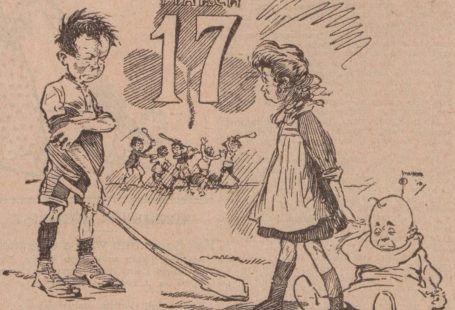We love the stories you tell us about the BNA – especially when the website has helped you overcome a major obstacle in your family history research.
So when Kathy Smith of Annapolis, Maryland, tweeted about how the BNA had helped her to solve a family history mystery which had been puzzling her on-and-off for 23 years(!), we were very keen to hear her story. And when Kathy told us that she’d almost forgotten all about the BNA until stumbling upon our Twitter page, we were doubly keen to hear her tale of ancestral Micawberism-cum-serendipity.
Kathy has very kindly let us publish her BNA discovery on the blog, so we’ll pass the story back to this American descendant of Devon/Cornwall miners…
The Past – January 2012
“Are we going fishing today?” When my husband asked, it took me a few moments to understand what he meant. Despite his tramping through a multitude of graveyards and poking around registrars’ offices, I couldn’t imagine that he would want to take time out to cast a line into the water. After all, we were in the rolling hills of Devon. Where might he do this anyway? Then it dawned on me. He meant microfiche.
Greg had squinted at the dull screen in far too many spots on my ‘ancestor search trip,’ far more than any genealogy-obsessed wife has the right to expect. He had assisted me, even encouraged me as we raced the afternoon setting sun to ascertain names on lichen-covered markers and resolved to look at “just one more” microfiche reel. After all, we had traveled from the United States to search, so we had to make the most of these three weeks. But now we were nearing the end of our expedition. And we were leaving with one mystery unsolved.
My 3X great grandfather, Thomas Richards, had lost his life in an accident. The circumstances behind this calamity mattered to me as I had resolved to understand the women on whose shoulders I stood. If I wanted a complete portrait of his daughter, Elizabeth Richards Millman, I had to know what happened to her father, Thomas Richards. Yes, I had his death certificate, noting he died on December 14, 1864. But Elizabeth was a six-year-old child and surely this catastrophe impacted her greatly. What had happened? Was this a work-related mishap? Did he die in some type of altercation? Was there anything illicit? I knew there had been an inquest as this was noted on his death certificate.
Elizabeth’s card, from her days as an unmarried girl in Lamerton, Devon
Because I believed his death likely influenced young Elizabeth, I could not let it go with the words “in an accident.” For a year and a half my fingers had clicked through documents on various websites in an attempt to resolve this mystery. Now, here we were in Devon, hoping to finally solve the question of Thomas Richards’ death but locals in Lamerton, parish records, and the Devon Family History Society could shed no light on this calamity.
As we checked out of the Browns Hotel in Tavistock, the desk clerk suggested we try the local library as it likely had old copies of newspapers. Could there be an obituary or report of the accident? We headed for this repository filled with hope only to be met with another failure. It was closed on Wednesdays! My husband gritted his teeth and headed for Plymouth, determined to ‘fiche’ for Thomas one last time.
Pulling into the car park of the university library, I felt the internal click of a clock, as I knew we needed to be in London. Quickly explaining what we wanted, the research librarians suggested several papers and brought reels of microfilm. Greg and I divided the task, turning the knobs, squinting at the blurry screen as we hurriedly scanned for any information. Nothing. This was a stubborn brick wall. Like so many of my ancestors, Thomas was a laborer. He came from nothing and would die with nothing. Likely his passing impacted few outside of his immediate family. Sadly it seemed he was not important enough to deserve a mention in the paper.
I returned home with no more information about Thomas as when I had left the comfort of my home office in Annapolis, Maryland.
The Present – July 2012
New to Twitter, my feed seemed to be an endless string of information. But something caught my attention. The British Newspaper Archive. This had been dangling in the back regions of my brain. A librarian in Plymouth had recommended it, and a writer in The Devon Family Historian mentioned the site, too. Now with a few clicks of my mouse, its mass of data sat before my eyes.
I typed Thomas Richards into the search engine, but first made the mistake of limiting the area to Devon. Using the dates December 14 1864, the day he died and December 16, 1864, the day of the inquest, I next chose “All” for the area. As I waited for the circle to swirl, I thought back, just six months ago to the eye-straining and backbreaking work of ‘fiching,’ and said a soft thank you to the computer programmers who made this so easy. And in those nanoseconds, I felt a pit in my stomach. My heart fluttered. Somehow I knew.
Four generations: Elizabeth Richards Millman holds my mother, circa 1931, Negaunee, MI, USA
And there it was. An article in The London Daily News finished Thomas’ story. He had died on his way to work at the Devon Great Consols Mine. “The earthwork gave way” when they stopped at Wheal Josiah. The man he was with died instantly. Thomas had injuries. I knew he wouldn’t live to see the next sunrise. There was nothing sordid. There was nothing disreputable. Two laborers had simply left their homes, walked to work, and died when the mined-earth opened. From where I sit today it seems a simple story. But in 1864, for a six-year-old and her mother, it was a life-changing event.
Thanks to the British Newspaper Archive, my data are complete. I now begin to write, Elizabeth’s Story.
To read more about Kathy’s family history research, visit her blog:




